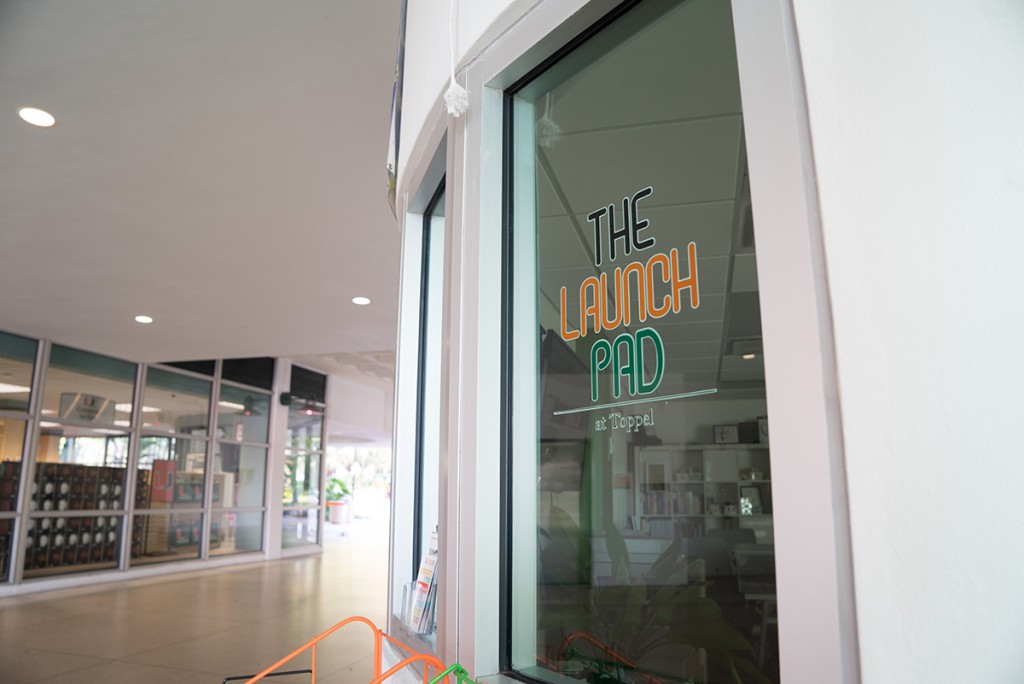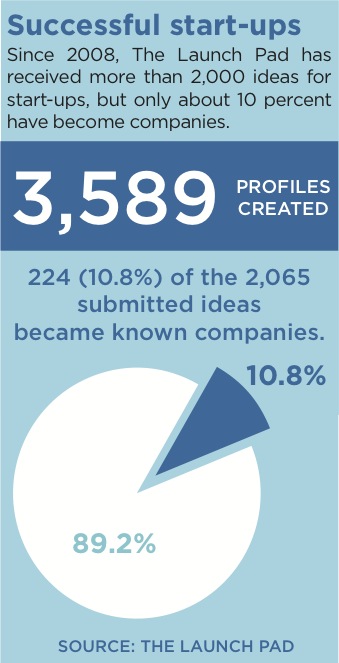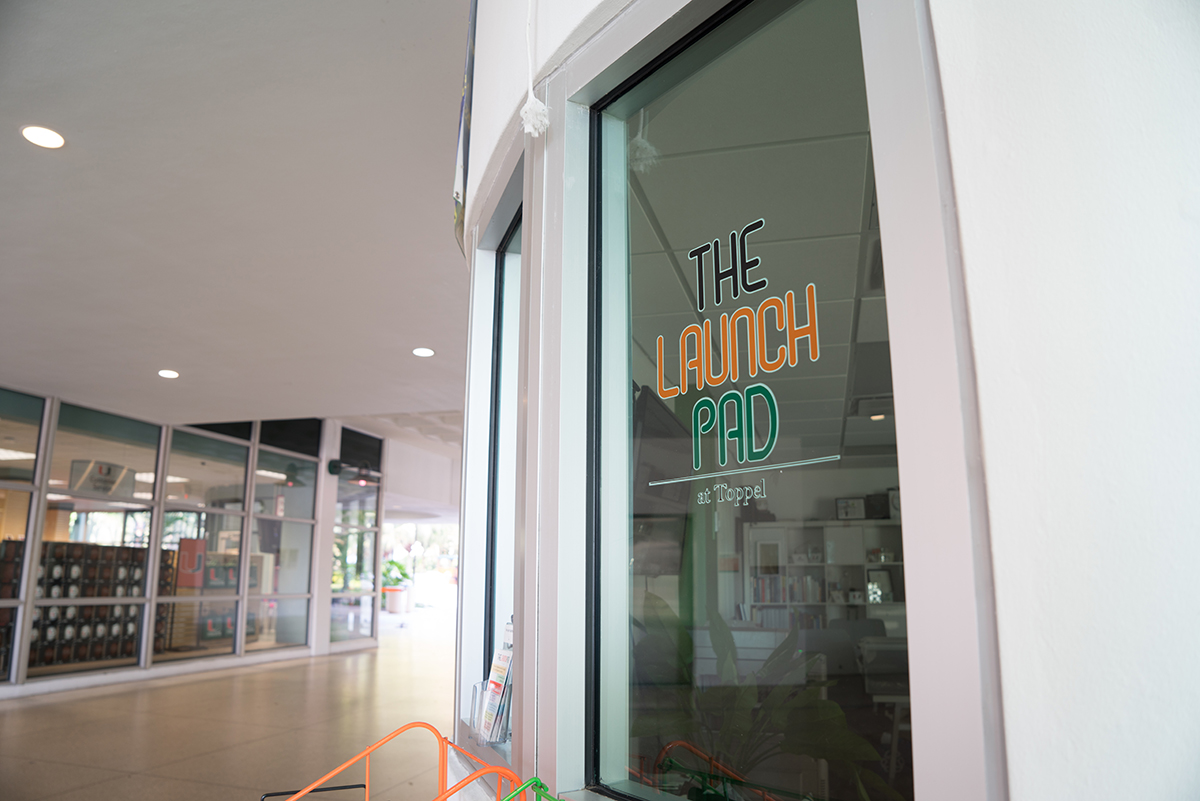
For an alumnus like Chuck Woodard, his time at the university allowed him to catapult a simple idea into a booming business.
Woodard is the creator of Chill-N Nitrogen Ice Cream, a business that the Launch Pad helped shape. He began with an idea to create natural flavored ice cream with liquid nitrogen and is now working on growing his business to include other locations.
The Launch Pad, which was created in 2008, works to encourage entrepreneurship and gives students the opportunity to submit a business idea, no matter how vague.
“We build entrepreneurs, and they build businesses,” said William Silverman, director of the Launch Pad.
Students who come to the Pad with an idea are given advice about how to analyze and gather information to execute their projects. It is then up to students to continue using the service as much or as little as they want.
“We want to educate students so they make their decisions because they understand it, not because we told them to take a certain direction,” Silverman said. “It’s awful to push them into a business they don’t want to do or change their ideas.”

Since the Pad’s opening, about 3,589 students have created profiles on its website and 2,065 ideas have been submitted online. Only 224, or 10.8 percent, known companies have been developed.
Alumnus Mark Slaughter also achieved national success through a business that started at the Launch Pad.
Slaughter’s company, Cohealo, helps hospital systems reduce their equipment costs by calculating which machines are used most. It was created two years ago in Miami and then relocated to Boston. He has made $10,000 so far.
Still, there are mixed reviews about how effective the Launch Pad is. Though some students are satisfied with this resource, others say they have not enjoyed the same success.
Senior Keri Lane says she went to receive help with an idea for a fashion app. Due to confidentiality, she was not able to disclose the specifics of her idea, but she said she was unsatisfied with the center’s service.
“I went to see if they could give me better guidance to get an idea of what to expect of running a company,” Lane said. “Everything else I’ve done on my own and I’m just going to continue with the company I’m already working with.”
Lane went with the hopes of being able to shadow an entrepreneur after Toppel referred her to the Pad, but was disappointed when she was told the opportunity wasn’t available.
“Besides not helping, I don’t think they fully grasped the concept of my app,” Lane said. “They’re very critical.”
Still, other students, like freshman Rachel Grunnet, have had more positive experiences.
“I got paired up with an awesome student who was really helpful,” Grunert said. “They give you these assignments based on the idea you bring to the table … she made me think about things that I hadn’t even considered before.”
Grunert hadn’t considered a career in business until she started working in a family-owned boutique in her senior year of high school.
“Being able to see first hand a family build a really successful business is one of the first things that prompted me to declare and wish to pursue entrepreneurship,” Grunert said. “I like the idea of being your own boss and not having to answer to somebody else.”
Though Grunert says she hasn’t had the time to revisit the Launch Pad this semester, she says she feels comfortable returning whenever she’s ready.
In the meantime, Grunert has learned the value of entrepreneurship and how to apply it to her idea.
“For me, [entrepreneurship] is about learning how to manage my own business and run a retail store,” she said. “My ideal goal would be to create a charity-based store, so I’ll keep my fingers crossed for that.”
According to Susana Alvarez, director of the entrepreneurship program at the School of Business, the college has seen an increased interest in students wanting to become entrepreneurs.
The business school’s entrepreneurship program was created in 1987 for students who wanted to set up and launch companies.
“We want to allow them more experience of the mechanics of running a business and making decisions as a CEO before they actually have to do it,” Alvarez said. “Right now, there are students who already have companies.”
According to Alvarez, of the 2,200 undergraduate students in the business school, 160 of those students are declared entrepreneur majors.
To make the program rigorous and relevant, Alvarez says she keeps three goals in mind when updating the curriculum every semester.
First, there must be fundamental knowledge about businesses, such as finance, marketing and accounting. Second, the students must gain experience while at UM – like pitching to potential investors, so it’s not the first time they do it once they graduate. And finally, there must be easy access to alumni to help students network.
“It’s all about improving the experience for students,” Alvarez said.
Eugene W. Anderson, dean of the business school, says that with growing interest in the major, it is important to ensure that students are prepared for life after college.
“Entrepreneurship and innovation are at a premium across all sectors and geographies, so we need to prepare students for this new world,” Anderson said. “Entrepreneurship majors are now common at top business schools around the world.”






